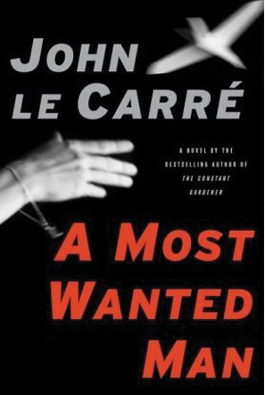home | metro silicon valley index | the arts | books | review

A Most Wanted Man
Reviewed by Michael S. Gant
GLOBAL CONFLICTS shift, from a Cold War with Russia (and maybe back) to a hot war on terror, but the double-dealing of the espionage trade persists. No novelist understands the spies who grease the wheels better than John Le Carré. In A Most Wanted Man, a haunted Chechen Muslim named Issa escapes to Hamburg, where he becomes a pawn in a game of infighting among the German, British and American spy agencies. Issa himself counts for very little; his only value is as a conduit to a high-profile Muslim cleric, Dr. Abdullah, who is "five percent" bad, meaning that he funnels charity money to terrorists. Günther Bachmann, a German "case-hardened fieldman" of the old school, wants to turn the cleric, make him a mole. His superiors may have different goals; Bachmann can't be sure. Issa, a broken man, once tortured and now twice shy, does matter to his lawyer, Annabel Richter, and to Tommy Brue, a British banker who wants to make up for his father's shady financial past and imagines a connection to the young Annabel. By the breathless conclusion—a terrific, cinematic set piece—pretty much everyone is comprised by the dirty business. Le Carré's best moments come in the verbal sparring of the spy bureaucrats. Informing Bachmann that his target has become a prize sought by others in the "episocracy," a fellow spy feigns solidarity: "Your case doesn't mean we have to blind ourselves and put our hands over our ears. We watch, we listen—but we don't disturb your case, okay? We run parallel to you." Without being overly preachy, Le Carré has an important point to make about the heinous use of rendition, and he nails it perfectly. He also deserves credit for coining a very useful word to describe way to many of our elected leaders: "politopaths." (By John Le Carré; Scribner; 324 pages; $28 hardback)
Send a letter to the editor about this story.
|
|
|
|
|
|